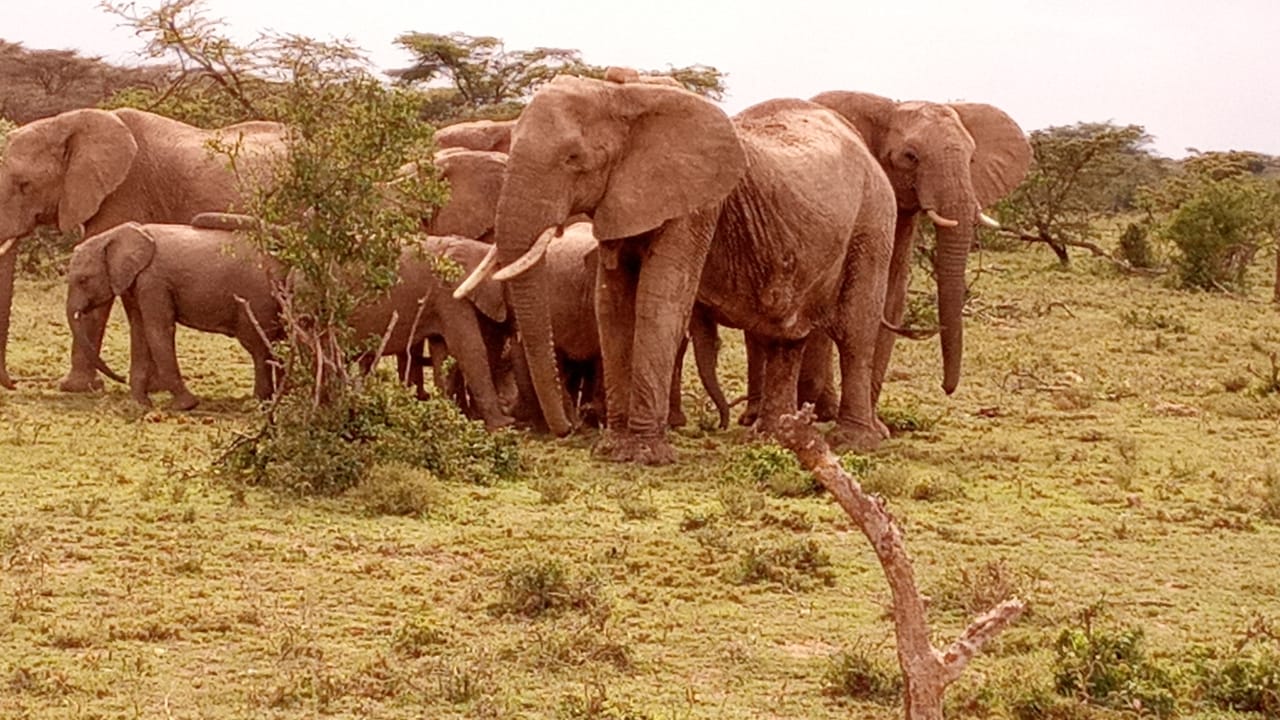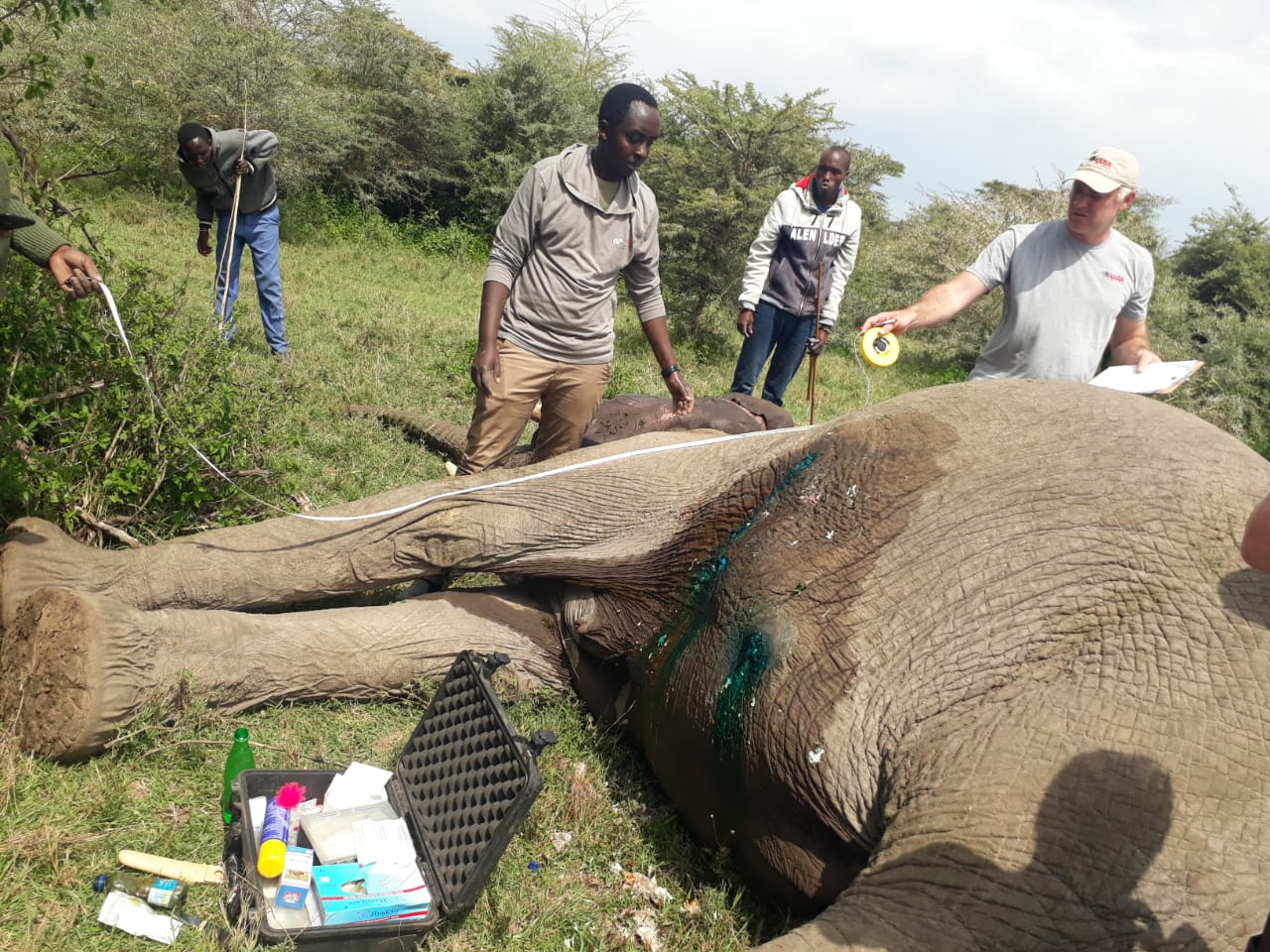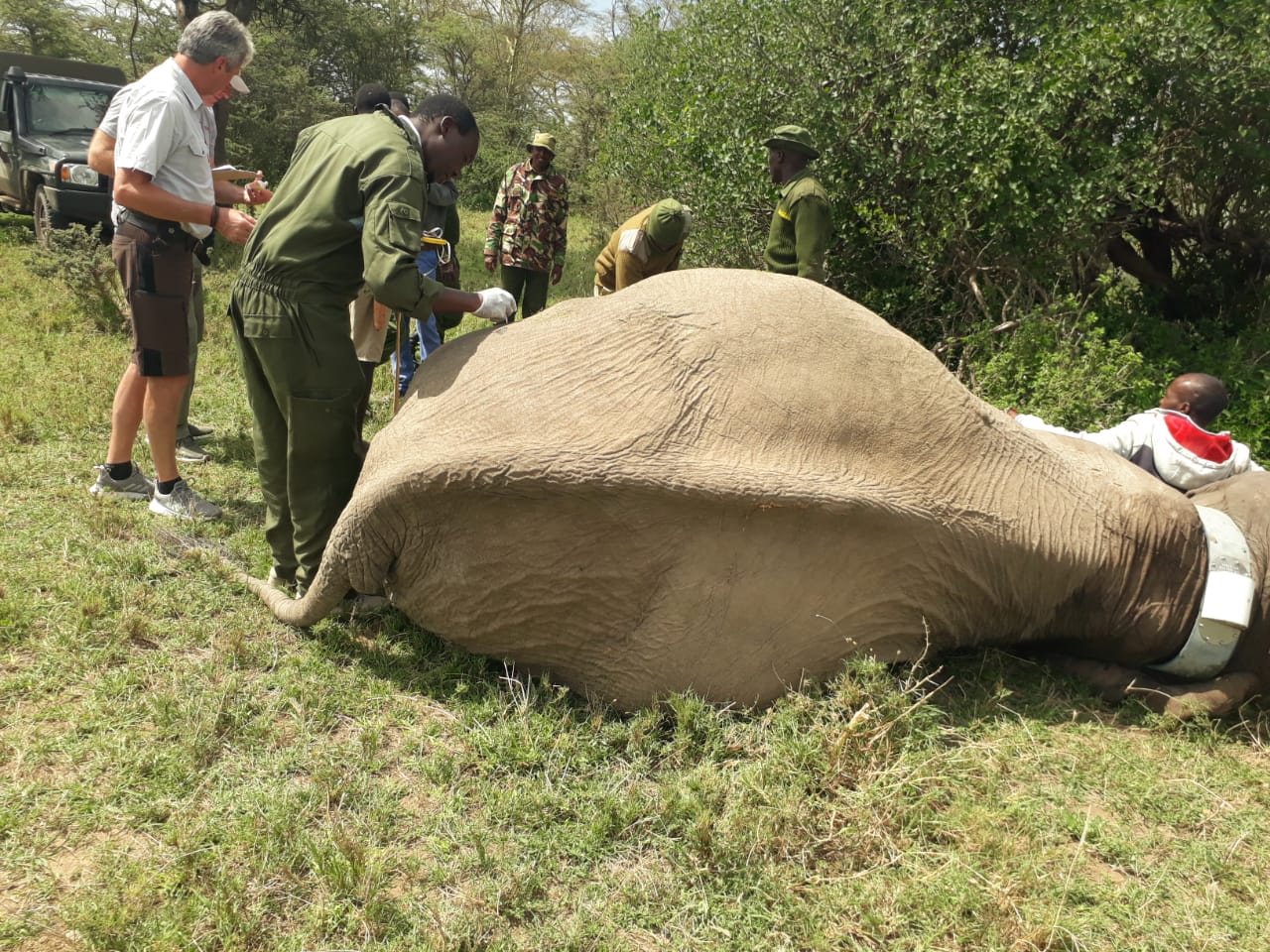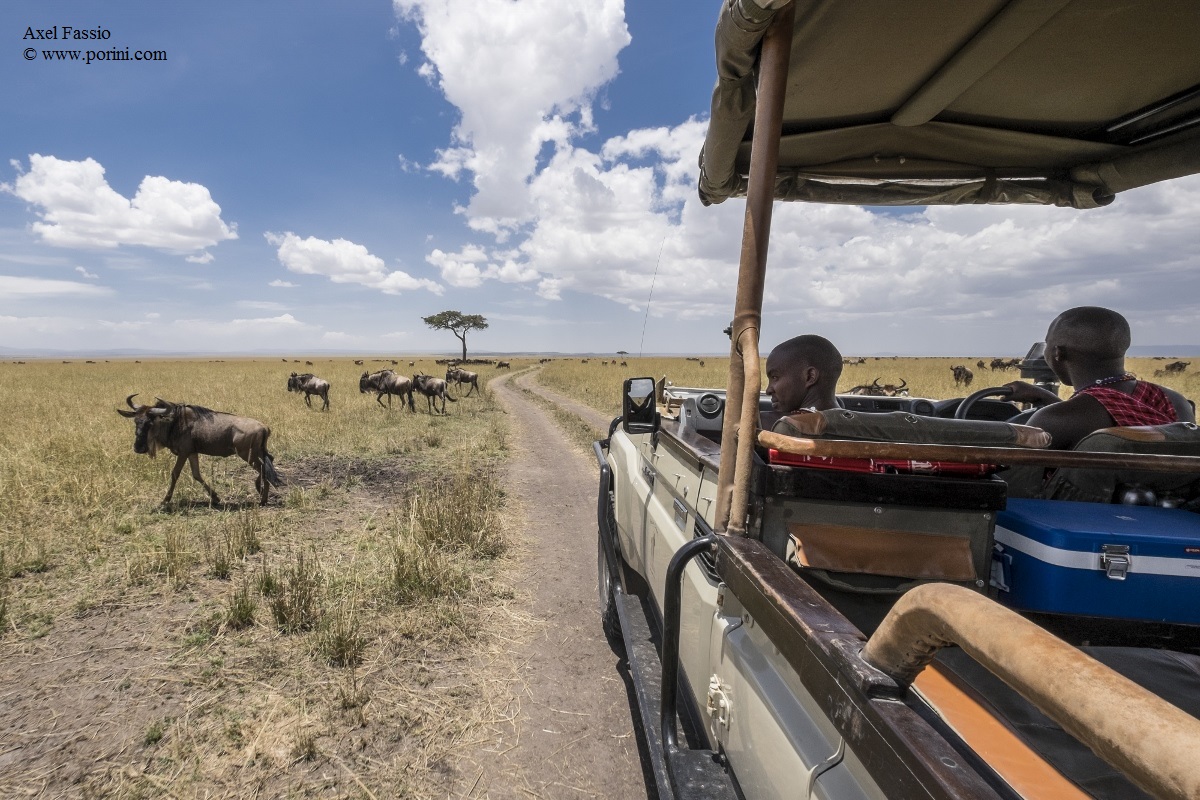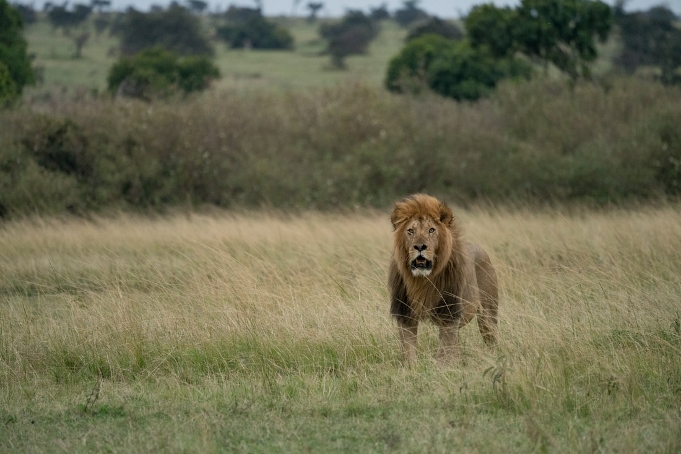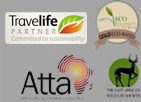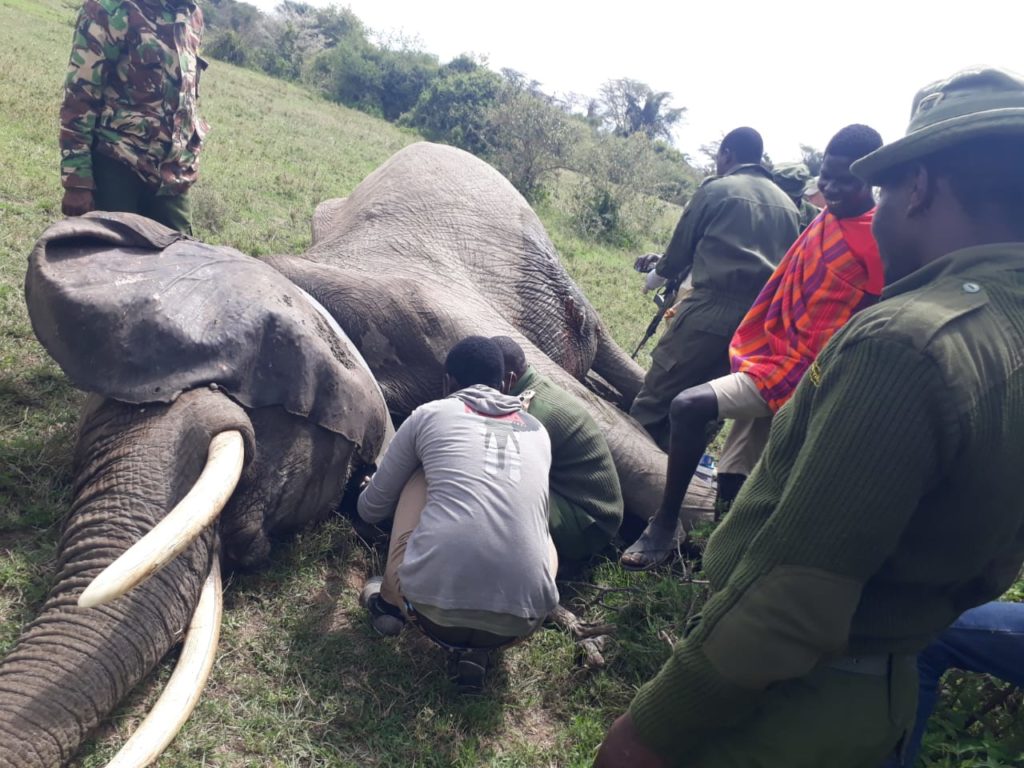
Yesterday, the rangers patrolling Ol Kinyei Conservancy were observing an elephant herd when they noticed one had a serious wound to its stomach which looked like it had become septic.
The elephant was identified as “Chelsea”, a collared female and mother-of-two of approximately 35 years of age.
The Kenya Wildlife Service (KWS) Vet and the team at Mara Elephant Project were informed, and they attended to the patient and she was successfully treated inside our Ol Kinyei Conservancy.
The goal of the Mara Elephant Project (MEP) is to protect all the wildlife across the rangeland from poaching and conflict with a focus on elephants. They support elephants by reducing human-elephant conflict and by identifying and protecting key habitats.
This is achieved with the use of GPS collars on a sample of animals. Collars are crucial in providing data which is used daily to mitigate conflict, identify migratory routes, inform ranger deployment and in anti-poaching work. The project and collaring is supported by the World Wildlife Fund (WWF) and Save the Elephants.
The rangers and safari guides of our wildlife conservancies play a vital role in observing the welfare and behaviour of various species and work closely with the KWS and MEP and it’s the revenue from guests staying in our Porini Camps in Ol Kinyei that provide the income to pay for the rangers and conservancy costs. So your stay at any of our Porini Camps including Porini Mara Camp and Porini Cheetah Camp in Ol Kinyei Conservancy directly helps to create a safe habitat for elephants like Chelsea and her calves and so many more.
Learn more about how we support wildlife in Kenya: Saving Wildlife in Kenya
on Friday 08th January 2021 at 02:33



